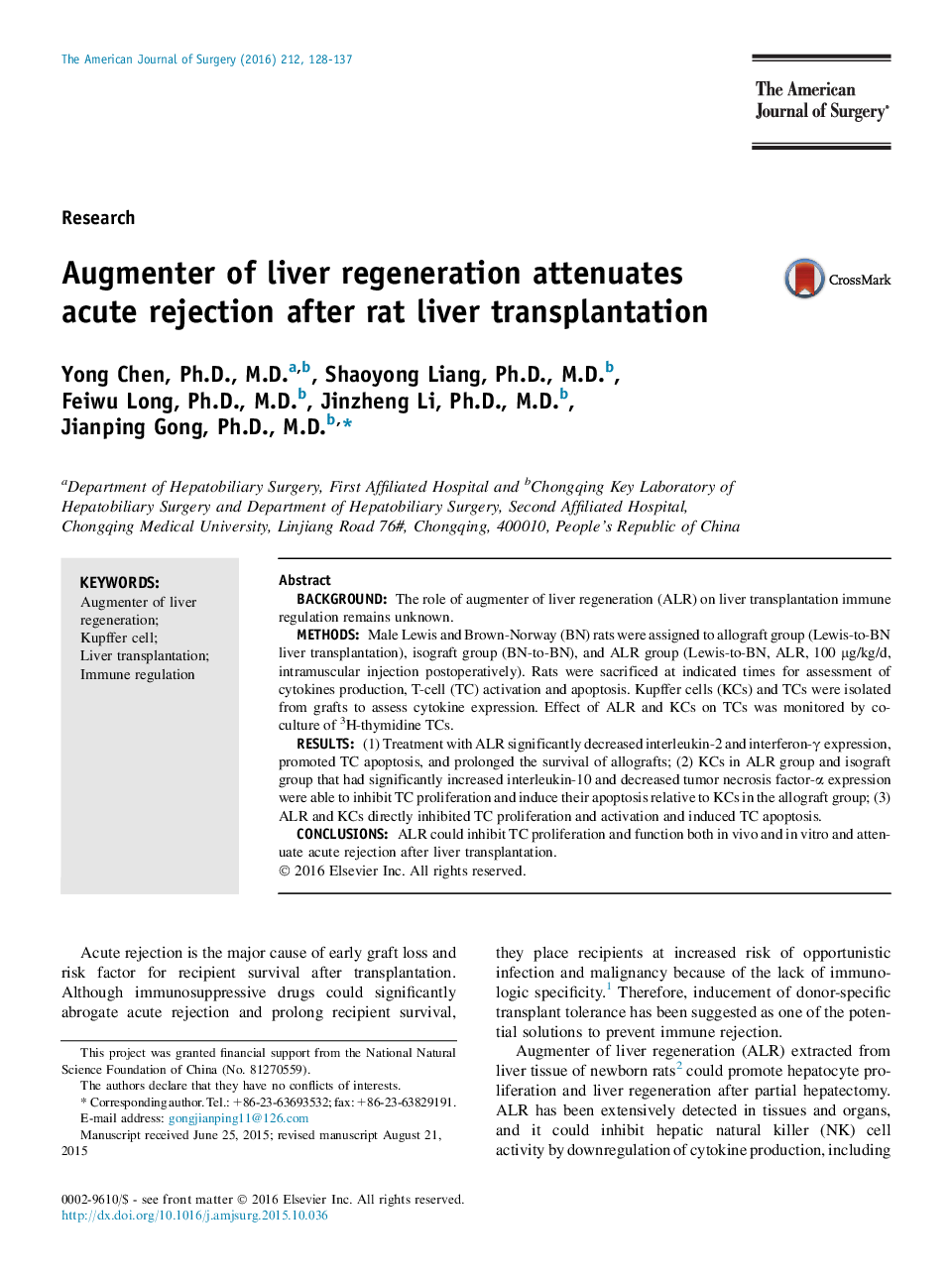| Article ID | Journal | Published Year | Pages | File Type |
|---|---|---|---|---|
| 4278129 | The American Journal of Surgery | 2016 | 10 Pages |
BackgroundThe role of augmenter of liver regeneration (ALR) on liver transplantation immune regulation remains unknown.MethodsMale Lewis and Brown-Norway (BN) rats were assigned to allograft group (Lewis-to-BN liver transplantation), isograft group (BN-to-BN), and ALR group (Lewis-to-BN, ALR, 100 μg/kg/d, intramuscular injection postoperatively). Rats were sacrificed at indicated times for assessment of cytokines production, T-cell (TC) activation and apoptosis. Kupffer cells (KCs) and TCs were isolated from grafts to assess cytokine expression. Effect of ALR and KCs on TCs was monitored by co-culture of 3H-thymidine TCs.Results(1) Treatment with ALR significantly decreased interleukin-2 and interferon-γ expression, promoted TC apoptosis, and prolonged the survival of allografts; (2) KCs in ALR group and isograft group that had significantly increased interleukin-10 and decreased tumor necrosis factor-α expression were able to inhibit TC proliferation and induce their apoptosis relative to KCs in the allograft group; (3) ALR and KCs directly inhibited TC proliferation and activation and induced TC apoptosis.ConclusionsALR could inhibit TC proliferation and function both in vivo and in vitro and attenuate acute rejection after liver transplantation.
